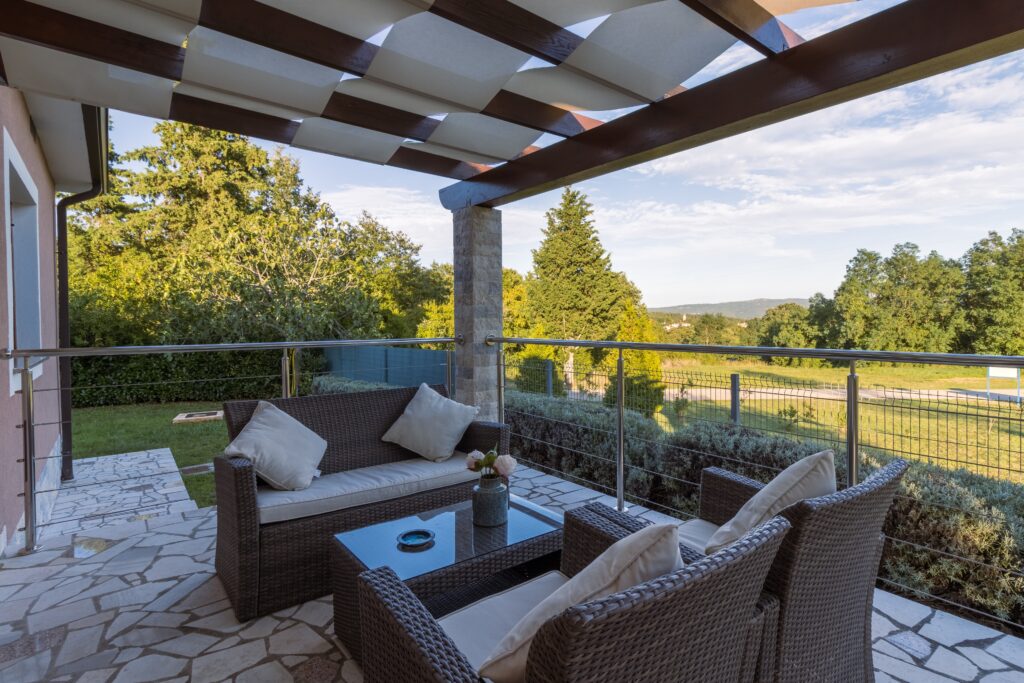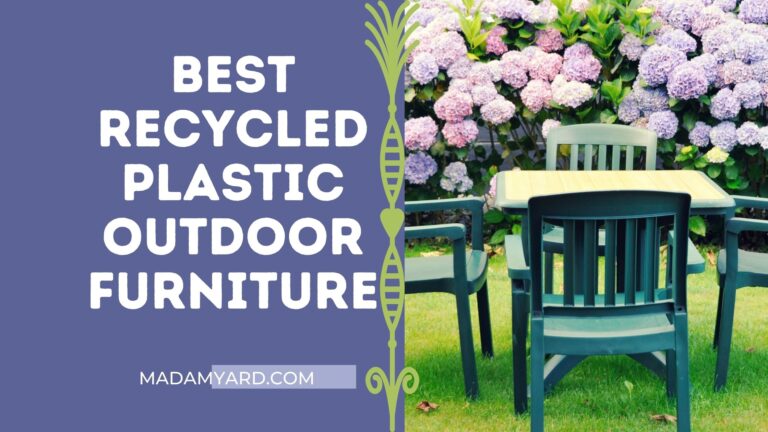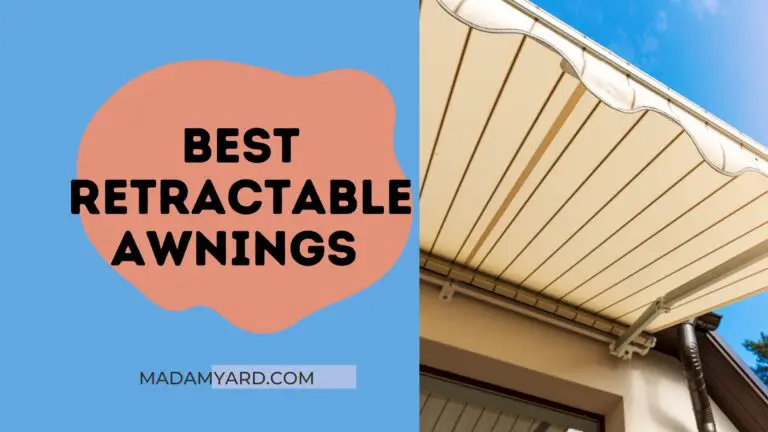Do Concrete Patio Pavers Need To Be Sealed?
Do you need to seal concrete patio pavers? The answer is it depends. Concrete is a porous material and can absorb liquids and oils. If you don’t seal it, the concrete can become stained and more difficult to clean. However, if you do seal it, the concrete will be less likely to stain and easier to clean.

What Happens if You Don’t Seal Pavers?
Sealing your concrete pavers is a great idea. Keeping them looking nicer for longer won’t extend their life or prevent them from wear and tear.
To avoid spending a lot of time weeding between your pavers, seal them. Weeds begin to grow between the pavers as seeds fall to the ground. This can be avoided by sealing the surface, as it can cause erosion and slabs slide due to soil movement.
Staining is the second issue. Concrete pavers are notorious for absorbing stains and making them difficult to clean. You’ll need to regularly wash the pavers if you want them to appear their best. Sealing the pavers will keep them stain- and oil-free, which is perfect for grill-equipped driveways and patios.
It’s crucial to note that the pavers will look fantastic. Sun and moisture will fade most pavers in the long run, but the sealer will keep the finish looking new longer. You should ignore the claims of some paver manufacturers that their products don’t need to be sealed and seal your pavers regardless. You’ll be able to maintain your new look for longer.
The “wetter” and glossier sheen that solvent-based sealers provide. However, water-based sealers are significantly more pleasant to work with than solvent-based sealers. They both provide good protection if applied correctly to the suitable concrete.
Is Sealing Pavers Really Necessary? (Does it Prevent Mold & Scratches?)
Sealing pavers is a process that is often recommended by professionals. It is said to help prevent mold and scratches, but is it essential? Some people believe that it is nothing more than a waste of time and money. Let’s take a closer look at the benefits of sealing pavers.
Protect pavers from weathering and staining
Sealing pavers can help protect them from weathering and staining. Pavers are made from various materials, but they are often made from concrete, brick, or stone. Sealing pavers can help keep them looking new by protecting them from the elements.
It is vital to seal pavers shortly after they are installed and then after that. Additionally, it will also help to prevent staining.
Helps to prevent the growth of moss and lichens
Sealing pavers helps to prevent the growth of moss and lichens. Moss and lichens can cause paver stones to become slippery, which can be dangerous.
The sealer creates a water-resistant barrier that will keep moisture out, which is essential for the growth of these organisms. In addition, sealing pavers will also help to protect them from staining and fading.
Makes the pavers easier to clean
Sealing your pavers makes them easier to clean. Sealing pavers with a good quality sealer will help protect them from staining and fading. It will also help keep the dirt and dust from building up on the surface of the pavers. This makes it much easier to clean them regularly.
Help to prevent cracking and fading
If you want to avoid cracking and fading, you should seal your pavers. Using a high-quality sealant to protect your paver project can extend its lifespan by several years. Sealing pavers also helps keep their hues from fading over time due to the sun’s UV rays. Paver sealing is a quick and easy operation that is well worth the time and effort.
What Is The Best Sealer For Concrete Pavers?
Solvent and water-based sealers are both available, as are film-forming and non-film-forming sealers. An additional barrier layer is created by the film-forming kind, which tends to be glossier. In contrast, the other sealer penetrates the concrete and has a matte appearance.
Pavers sealed with a solvent sealer look shiny, while those sealed with a water-based sealer look more natural. There is a lot of overlap between the two products when protecting the pavers and applying them, so it really boils down to personal preference and how comfortable you are with using a volatile organic compound (VOC) on your patio.
How Do You Seal Concrete Pavers?
Sealers for concrete pavers can be sprayed, rolled, or a combination of both.
Remember that this job must be performed in one go for a smooth, even finish and to ensure that it is completely covered. Preparation is critical when sealing a large area like a driveway.
Check the weather prediction as well, as you’ll need three dry days to do the job. Temperatures outside this range are too cold or too high for proper curing. Make sure kids and pets are out of the way before you start, and keep them off the pavers until the sealer has hardened.
- Sweep and wash the concrete pavers the day before you intend to seal them.
- Read the sealer’s directions. Thick sealers require a roller, while lighter sealers can be sprayed.
- If you’re going to spray the sealer on, utilize a sprayer with an adjustable nozzle. Spray it in a fan shape. Never blast it.
- Choose a thick roller to ensure it penetrates the gaps between the pavers.
- Apply the sealer as directed. Work in a pattern, so you know where you’ve coated. When spraying, move the sprayer in circles.
- Some apps necessitate backrolling. See what your manufacturer suggests.
- Clean your equipment quickly before the sealer sets.
- Cure the driveway or patio as directed by the manufacturer.
How Long Should Pavers Dry Before Sealing?
It is essential to wait until the pavers are completely dry before applying the sealant. How long this takes depends on the weather and the type of sealant used. Some sealants dry in minutes, while others can take hours or even days.
Applying the sealant before the pavers are completely dry can cause discoloration and may not adequately protect against staining. New pavers require 60-90 days for efflorescence to settle before they may be used.
This has to go to the surface before you can have it cleaned up. White marks should not be sealed in. Keep your uncovered pavers clean by avoiding spilling any grease, oil, or other staining agents.
How Do You Prepare The Pavers Before Sealing?
Before you seal your pavers, it is essential to clean them. This will remove any dirt, dust, or other debris on the surface. Cleaning the pavers will also help the sealant to adhere better.
How Much Does it Cost To Seal Paver Patio?
It’s easy to find paver sealer in gallons or five-gallon buckets at your local hardware shop online. A gallon of sealer can range from $35 to $90, depending on the brand and type. How much coverage does a gallon provide? You’ll have to check out each product to find out. Astonishingly, the size ranges from 80 to 400 square feet, depending on how thickly it is applied and how many coats are required.
How long do sealing pavers last?
Generally speaking, the best sealers for patio pavers last between three and five years. However, elements like traffic, weather, and upkeep might affect the sealant’s lifespan. These can reduce the life expectancy of the pavers. Protect paver stones from the elements by applying a film-forming sealant.
Conclusion
Concrete patio pavers do not need to be sealed. However, if you want to seal them, it is good to do so. Sealing the pavers will help to protect them from staining and fading. It will also help to keep them looking new for longer. If you decide to seal your concrete patio pavers, be sure to use a high-quality sealant that will provide the best protection.








You caught my attention when you talked about how sealing your concrete pavers can help prevent the formation of moss. Moss could easily ruin the perfect aesthetic of our outdoor kitchen by turning the sleek luxurious flooring into an ugly green tint. I’ll prevent that from being an issue by making sure I hire a concrete sealing expert from the area to help out with this process.